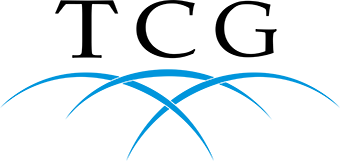Entering the Medical Device Market in Japan
November 18, 2020 – The Japanese market represents a significant opportunity for small and mid-sized medical device companies with historically strong pricing and distribution partners. The Technology Commercialization Group (TCG) can help companies navigate the challenges of entering the Japanese market.
Japan’s aging population and strong history of adopting new medical technologies have fueled the growth of the Japanese market for medical devices. In 2018, Japan spent $29.3 billion on medical devices. And while the country has a sizable medical device industry, particularly in imaging technologies, more than 70% of medical devices used in Japan are imported from the United States and Europe.
In the past, challenging regulatory requirements have led many smaller medical device companies in the United States and Europe to forego Japan. But Japan has streamlined its regulatory processes considerably in the last ten years, including a much greater willingness to accept foreign data in submissions.
Japanese physicians are enthusiastic, early adopters of novel medical technologies. Unfortunately, in the past, Japan’s onerous regulatory requirements meant Japanese physicians were often behind their US and European counterparts in getting access to the latest medical devices. The medical community in Japan has thus been one of primary drivers for regulatory reforms that have streamlined the process of getting new medical devices approved and reimbursed in Japan.
Medical device selling prices in Japan are higher, on average, than in other geographic markets. Historically, Japan has paid the highest prices in the world for advanced medical technology; higher than the United States and much higher than most European countries. High reimbursement enables many device manufacturers to realize higher product prices and profit margins than in many other geographic markets.
There are three important initial steps that foreign companies should take in considering and planning their Japan market entry:
- Understanding regulatory approval requirements and timelines
- Determining the relative reimbursement pathways and implications for product pricing
- Finding a distributor to support product launch and on-going sales and marketing efforts
The medical device regulatory environment in Japan has been historically challenging for foreign companies. In the past, the Pharmaceutical and Medical Device Agency’s (PMDA) had required foreign medical device companies to conduct local clinical trials. More recently, the PMDA has begun to accept foreign clinical data in support of foreign product registrations. In addition, the regulatory agency has also streamlined the review process and reduced approval times. While still significant, the Pharmaceutical and Medical Device Agency’s (PMDA) timeline for approval is significantly less than it was just ten years ago. For more complex or novel devices, PMDA may require clinical studies in Japan. While this can be a significant expense, it also creates an opportunity to build relationships with key opinion leaders in Japan ahead of a market launch.
Japan has a robust and well-funded public and private insurance and reimbursement system. All medical device products, whether domestic or foreign, must be approved for listing in Japan’s reimbursement system. Device manufacturers apply for a reimbursement rate, or price, to the Ministry of Health, Labor and Welfare (MHLW). Sometimes the MHLW may require additional healthcare outcome information in consideration of a product price request. Once granted, the product price is effective under all insurance schemes whether public, private or employer based.
When approval is achieved, a US or European firm must designate a local Marketing Authorization Holder (MAH) as its local representative. This can be a distributor, or one of many Japanese companies that exist to serve as MAHs for foreign companies.
Determining the optimum sales channel and finding an effective distributor is key for a successful product launch and continued sales growth in Japan. Many of the large, multinational medical device firms work closely with a network of dealers and distributors in addition to having their own direct sales organizations in Japan. There is a large group of medical device distribution companies that specialize in working with medium and smaller sized firms from the United States and Europe. Many of these distributors not only have the traditional sales and marketing capabilities, but also substantial customer service, education and regulatory capabilities.
The first step for foreign medical device companies is to identify a Japanese distributor with strong experience in the target specialty (e.g. orthopedics, interventional cardiology, rehabilitation medicine, etc.). The device manufacturer can work with the distributor to evaluate a product’s potential in Japan and to understand the regulatory pathway. Many Japanese distributors will do this initial market and opportunity assessment at no cost to the manufacturer as their main interest lies in getting new products for their sales organizations to sell.
Dean Gray has introduced a range of diagnostic imaging and medtech products in Japan. At Becton Dickinson (BD), he established and grew the specialty surgical instrument and supply business in Japan. Dean successfully launched numerous new products and led the expansion of Boston Scientific’s Japanese urology, gastroenterology and endoscopy businesses. For a US VC-backed start-up, he identified, recruited and managed a specialty Japanese distributor to successfully launch and market a novel nuclear cardiology imaging device. Dean studied and worked in Japan for several years. Contact Dean at dean.gray@tcgmedtech.com.
About TCG
Advising Life Science Companies for Growth
Founded in 1998, TCG is an international business consulting firm serving medical device, imaging, diagnostic, digital health and health IT companies from its offices in the USA (Research Triangle Park, North Carolina, San Francisco and San Diego, California) and Europe (Heidelberg, Germany). TCG assists its clients to accelerate their journey to success by providing strategic advisory services across many critical needs: market entry, key opinion leader engagement, product launch, business development, reimbursement and regulatory pathway assessment, distribution channel development, and improving organizational effectiveness. We expand our clients’ reach and company resources by finding new partners and financing sources. We help build new organizations and teams to execute on new opportunities. Our goal is to power our clients’ growth and long-term success.
